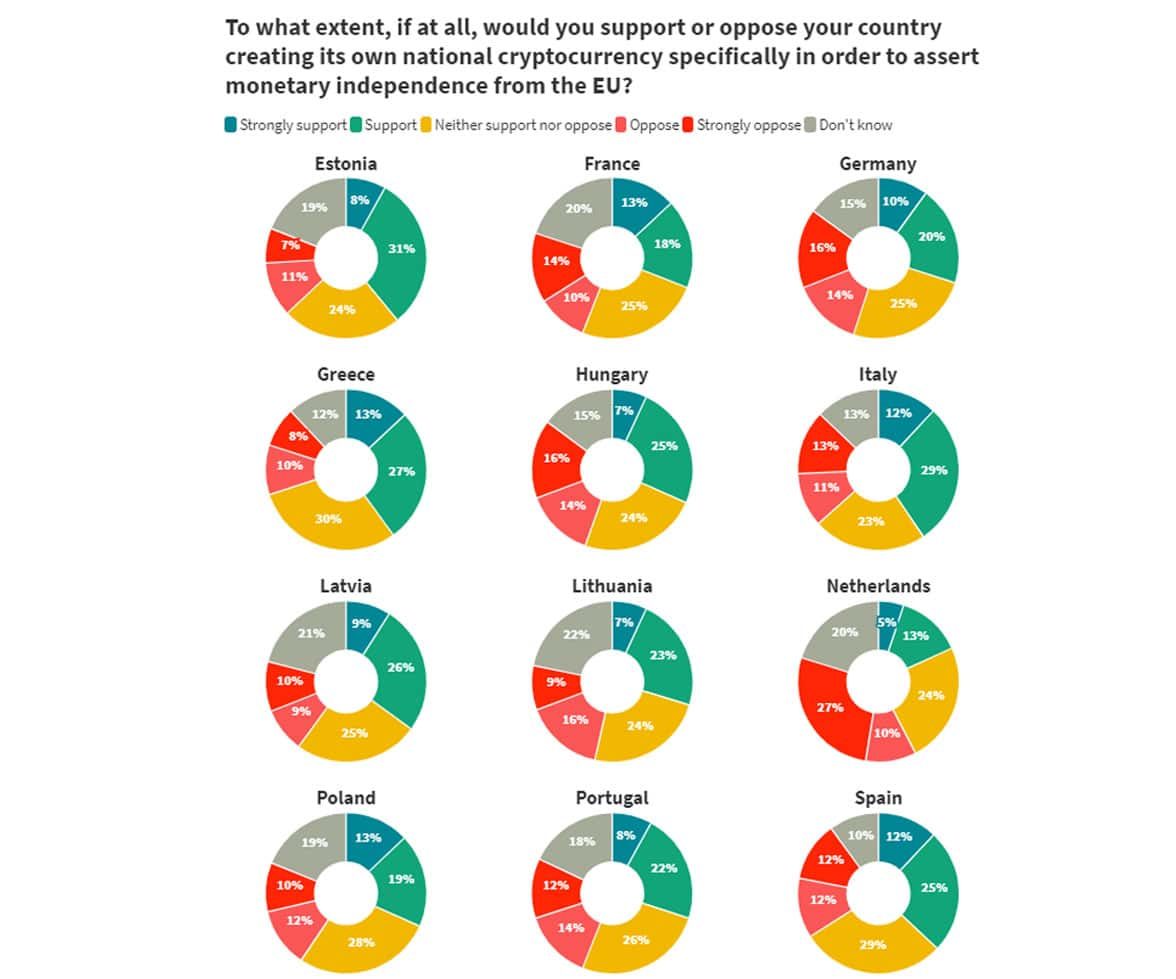
A “growing number” of Europeans would support the creation of national digital currencies with the specific aim of asserting “some monetary independence” from the European Union, according to a survey commissioned by Euronews.
The survey shows that while the issue of European countries developing autonomous central bank digital currencies (CBDC) independently of the EU “drew a mixed reaction”, support for the idea is strongest in Italy (backed by 41% of respondents), Greece (40%), Estonia (39%) and Spain (37%). The Netherlands was the only country where the percentage of those opposing the idea (37%) exceeded those who supported it (18%).
Opinion in Germany was divided equally, with 30% backing the idea and 30% against it, while more than one in four survey participants said they would neither support nor oppose such a move.
For countries in the eurozone, however, “membership of the single currency could stop any plans for national e-currencies in their tracks,” Wilfried Martens Centre research officer Dimitar Lilkov told Euronews.
“Eurozone countries who want to make use of a digital currency would be bound to a potential digital euro, run by the European Central Bank in coordination with the eurozone banking system.
“For a country like Greece or the Netherlands to opt for a national digital currency different from the euro (a hypothetical e-drachma or e-guilder), this would mean seceding from the eurozone. This will not happen.
“Non-eurozone EU members would, by contrast, be relatively free to explore potential digital national currencies.”
The survey of attitudes to cryptocurrencies and financial regulation was conducted by Redfield and Wilton Strategies on behalf of Euronews in August, with some 31,000 participants across 12 EU member states: Estonia, France, Germany, Greece, Hungary, Latvia, Lithuania, the Netherlands, Poland, Portugal and Spain.
The European Central Bank officially launched its digital euro project in July.
Next: Visit the NFCW Expo to find new suppliers and solutions